The Lakewood Township Stormwater Basin Retrofit Project (LTSBRP) is designed to enhance water quality within the Metedeconk River watershed by retrofitting stormwater basins throughout Lakewood Township. This project is a collaborative effort led by the South Jersey Resource Conservation and Development Council (SJRC&D), in partnership with Camden County Soil Conservation District (Camden SCD), Ocean County Soil Conservation District (OCSCD) and the Lakewood Township Department of Public Works (LTDPW). It is funded by a federal Clean Water Act Section 319(h) grant through the New Jersey Department of Environmental Protection.
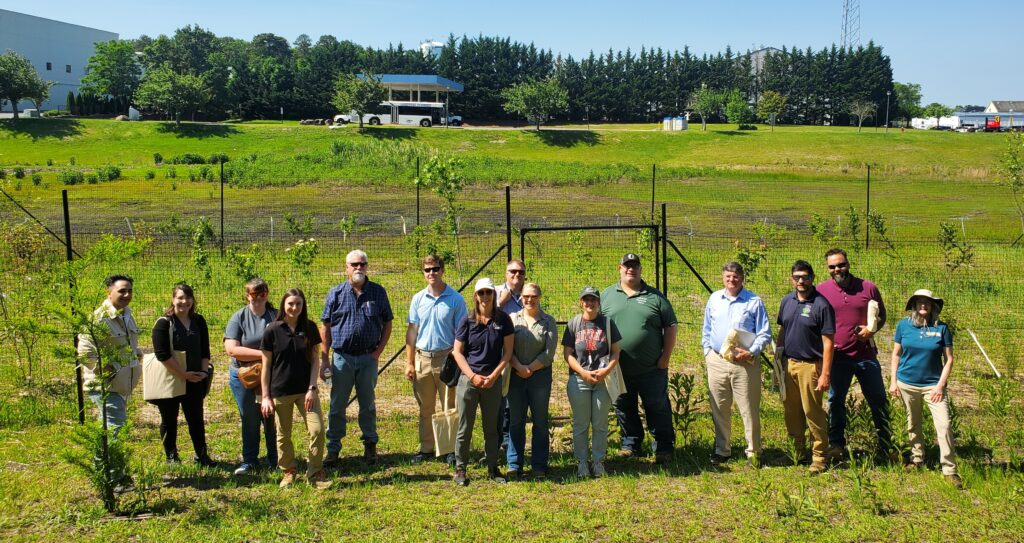
The project’s primary goals include retrofitting up to 12 stormwater basins in Lakewood Township to reduce non-point source pollution, improve water quality, and restore local ecosystems. These retrofits involve the use of native vegetation to enhance soil health and provide habitat for wildlife, thereby serving as a model for sustainable water practices in developed areas.
The project began with a comprehensive assessment of Lakewood Township’s 181 stormwater basins to identify those most suitable for retrofitting. Factors such as soil conditions, proximity to water bodies, and potential for public engagement were considered. Selected basins have been transformed using native vegetation like Big Bluestem, Switchgrass, and Swamp Milkweed, supplied by Pinelands Nursery. These native plantings enhance the basins’ ability to filter pollutants, manage runoff, and support local wildlife.
While the physical transformation of the basins is a central goal, education and public engagement have been equally important throughout the project. On June 3, the LTSBRP team hosted one of its most exciting and meaningful events: the LTSBRP Presentation & Bus Tour, a culminating educational program designed to showcase the project’s real-world impact.
The day began at the Lakewood Township Department of Public Works, where project leader Craig McGee, Director of Camden County Soil Conservation District, delivered an insightful presentation that detailed the science, strategy, and collaboration behind the project. Attendees representing local municipalities and agencies gained a deeper understanding of the goals, design considerations, and environmental benefits of stormwater basin retrofits.
Following the presentation, the group boarded a shuttle bus provided by the Lakewood Township Department of Public Works to visit three of the retrofitted basins: America Ave, Sunset Road, and FirstEnergy Park North. It was a clear, sunny day—perfect for witnessing the results of the project firsthand.
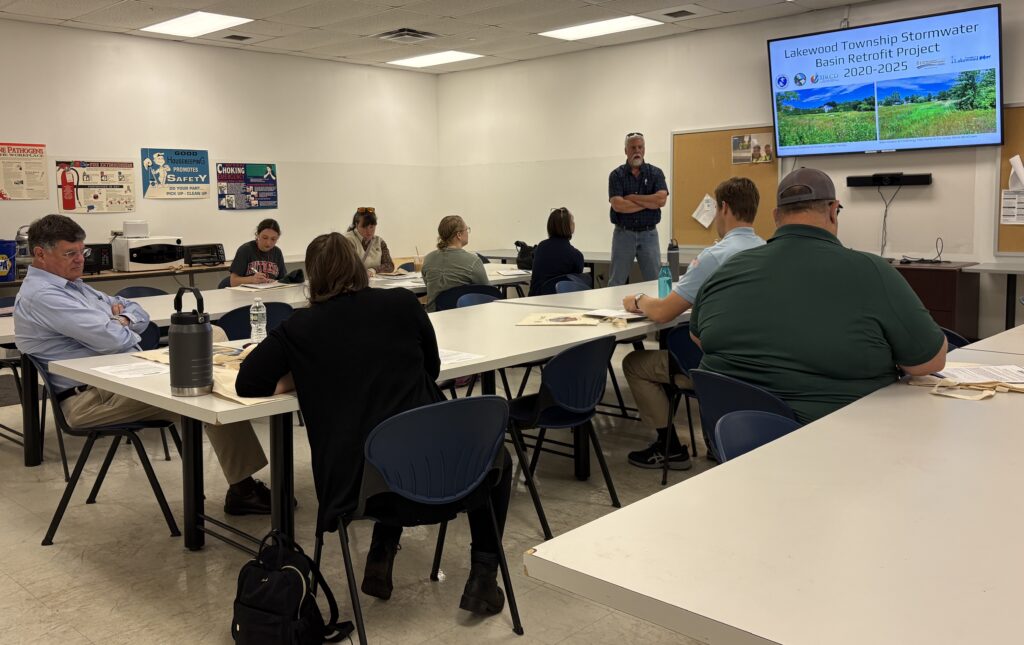
At each stop, attendees stepped out to explore the basins up close. They observed basins flourishing with native grasses, perennials, and trees, contributing to healthy soil and effective water infiltration. Once nondescript and engineered solely for water capture, these basins are now thriving microhabitats. The presence of butterflies and the sound of birdsong at each site underscored the creation of new habitats for wildlife. These observations exemplify the project’s success in transforming stormwater basins into functional ecosystems that support biodiversity and environmental resilience.
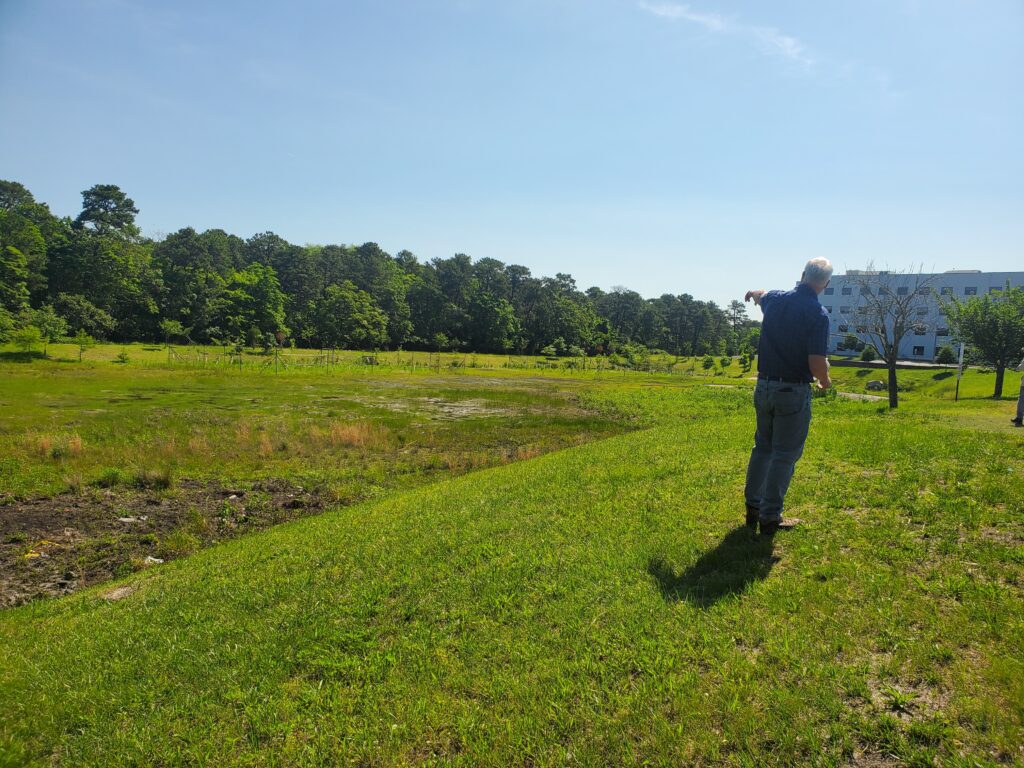
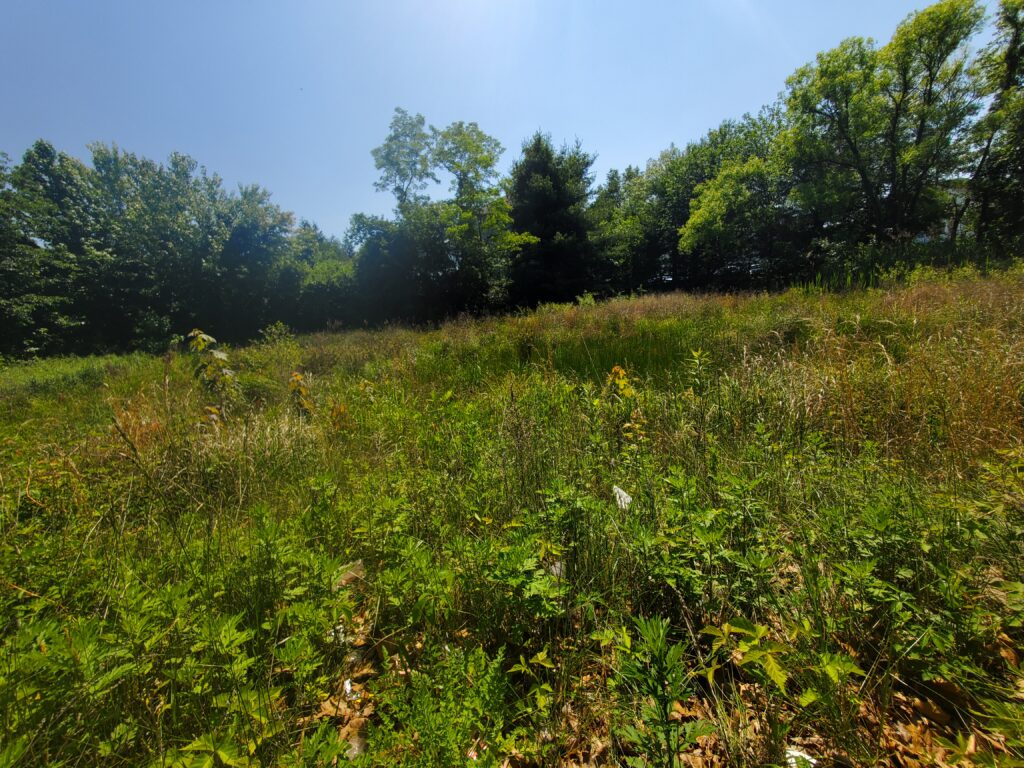
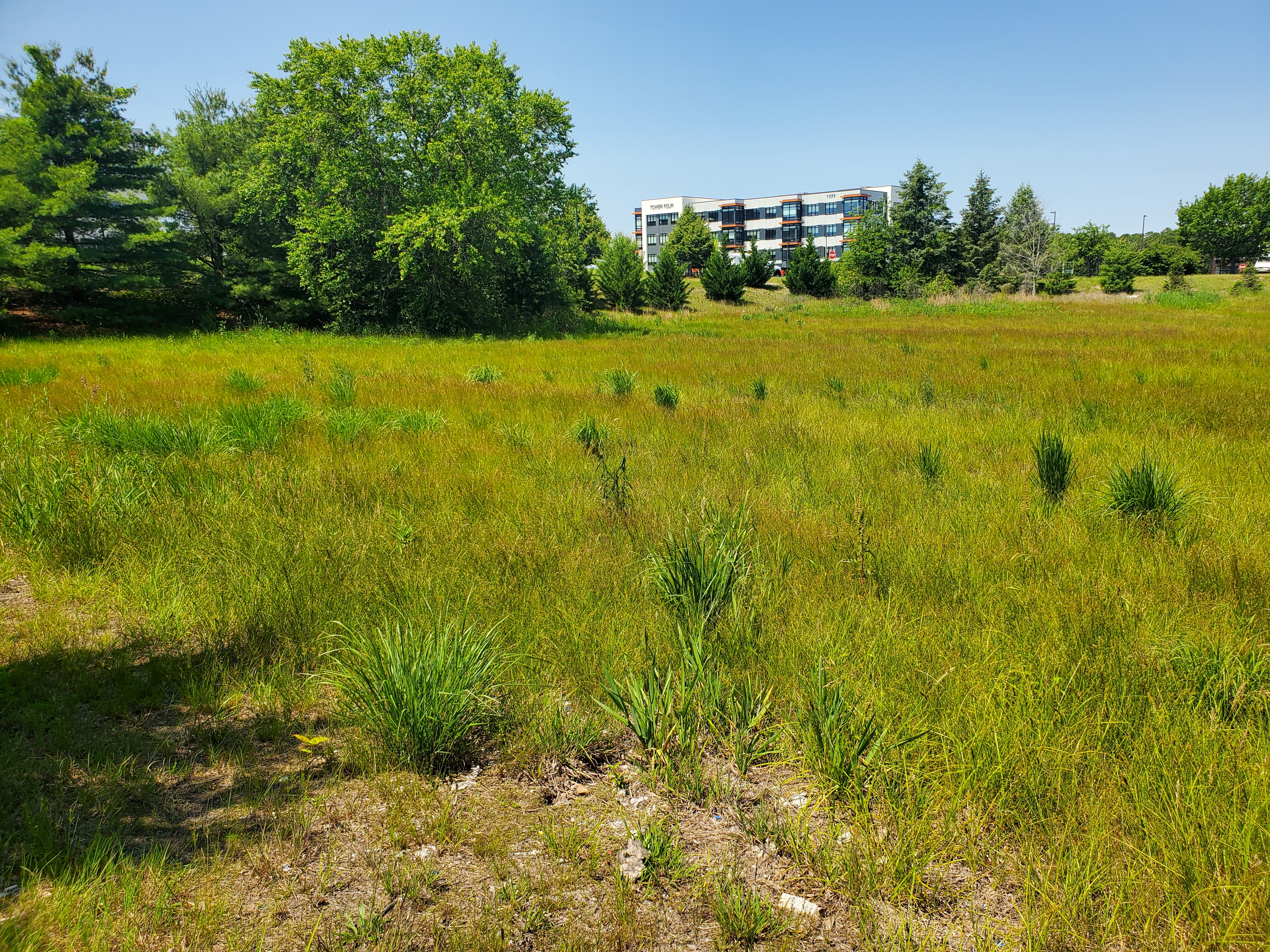
The tour showcased the tangible benefits of the retrofitting efforts and brought the project’s mission full circle: from planning and restoration to education and community connection. It was a vivid reminder that stormwater basins can be more than infrastructure—they can be opportunities for habitat, learning, and stewardship.
The LTSBRP stands as a testament to the positive impact of collaborative environmental initiatives. By integrating stormwater management with ecological restoration and community education, the project not only addresses environmental challenges but also fosters a deeper understanding and appreciation of sustainable practices among local agencies, as well as residents.
To learn more about the Lakewood Township Stormwater Basin Retrofit Project, visit the Ocean County Soil Conservation District’s website.
